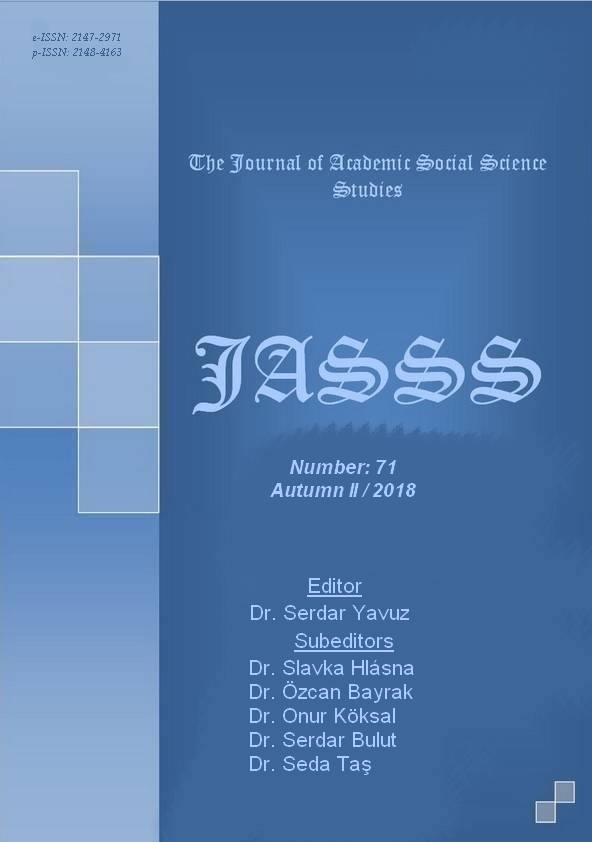YARATICI DRAMA EĞİTİMİNİN ÜNİVERSİTE ÖĞRENCİLERİNİN SOSYAL ZEKÂ VE MENTAL İYİ OLUŞ DÜZEYLERİNE ETKİSİ
Author :
Abstract
Bu araştırmada üniversite öğrencilerinde, yaratıcı dramanın sosyal zekâ ve mental iyi oluş düzeylerine etkisinin incelenmesi amaçlanmıştır. Araştırmaya, 2017-18 eğitim öğretim yılı Necmettin Erbakan Üniversitesi, Turizm Fakültesi Rekreasyon Yönetimi Bölümünde seçmeli ders olarak “Drama” yı seçen 12 üçüncü sınıf öğrencisi (deney grubu) ile drama dersi almayan 11 üçüncü sınıf öğrencisi (kontrol grubu) katılmıştır. Araştırmada, eşitlenmemiş kontrol gruplu ön test - son test yarı deneysel desende bir araştırma modeli kullanılmıştır. Araştırmada, veri toplama aracı olarak Tromso Sosyal Zekâ Ölçeği ile Mental İyi Oluş Ölçeği kullanılmıştır. Verilerin analizinde SPSS 21 paket program kullanılmıştır. Verilerin Shapiro Wilk testi ile normal dağılım gösterip göstermediği tespit edilmiştir. Toplanan nicel verilerin analizinde parametrik analiz türlerinden independent t-testi ve Paired Sample t Testi” kullanılmıştır. Araştırma bulgularına göre; deney grubunun sosyal zekâ ölçeğinin tüm alt boyutlarında ve mental iyi oluş ölçeği düzeyinde ortalamalar arasında artış olduğu gözlemlenirken; son testte sosyal beceri alt boyutunda deney ve kontrol grubu arasında istatistiksel olarak anlamlı farklılık olduğu tespit edilmiştir (p
Keywords
Abstract
In this study, it was aimed to investigate the effects of creative drama on social intelligence and mental well-being in university students. In this study participated 12 third class students (experimental group) who selected "Drama" as an elective course and 11 third grade students (control group) who did not take drama courses from Necmettin Erbakan University, Faculty of Tourism, Department of Recreation Management in 2017-18 academic year. This study is a Pretest – Posttest Nonequivalent Groups Quasi – Experiment design. As data collection tools were used Tromso Social Intelligence Scale and Mental Goodness Scale in the study. In the analysis of the data, was used SPSS 21 package program. It was determined that the data showed normal distribution with Shapiro Wilk test. In the analysis of the collected quantitative data were used independent t-test and Paired Sample t Test from parametric analysis types. According to research findings; While it was observed that the experimental group had an increase in all subscales of social intelligence scale and averages in the level of mental well-being scale; it was found that there was a statistically significant difference between the experimental and control groups in the social skills subscale of the post test (p





